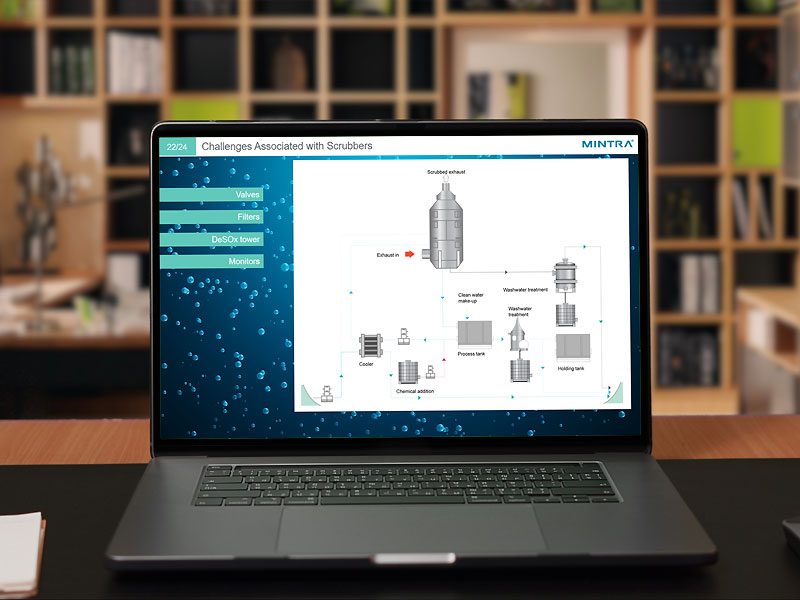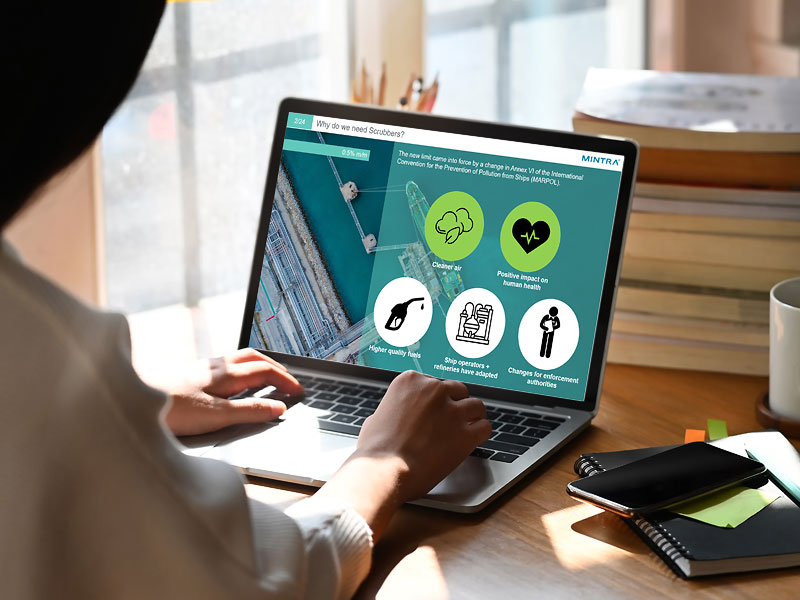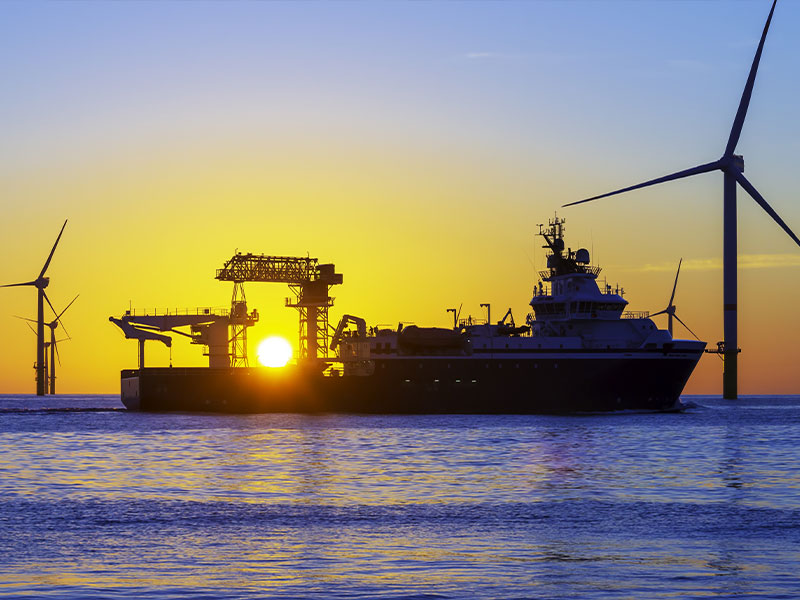Training seafarers on systems to reduce vessel emissions
It is almost two years since the International Maritime Organization (IMO) introduced compulsory measures limiting the sulphur content of fuel oil used on board ships. It came in a bid to improve air quality and protect health: sulphur oxide emissions contribute to respiratory and cardiovascular conditions, lead to acid rain and are a significant factor in the acidification of oceans and waterways.
Known as IMO 2020, the regulation reduced the maximum allowable limit of sulphur in fuel from 3.5% to just 0.50%. There is, however, an exception to the rule that means not all vessels must convert to using very low sulphur fuel oil (VLSFO) in order to meet the strict criteria.
Vessels that have installed scrubbers – exhaust gas cleaning systems that neutralise acidity from gases by scrubbing them with an alkaline material – can continue to use traditional forms of fuel oil and still comply with the sulphur cap. Demand for scrubber installations skyrocketed as a result of IMO 2020. According to data from DNV Alternative Fuels Insight, the number of ships with scrubbers installed increased from just 736 in 2018 to 4,047 in 2020.


With this new technology firmly adopted in the maritime community, there is a need to ensure that crews are trained in how to use it appropriately. Competency consultant, training lead and marine electrical engineer Martyn Thomas (MIMarEST) is the subject matter expert used by Mintra for our new Introduction to Scrubbers eLearning course.
It is one of a number of courses that Martyn – a seasoned training lead with more than 30 years of experience in the maritime and training sectors – has worked on as part of Mintra’s recently expanded maritime-specific eLearning library.
Here, he discusses why so many ships have converted to the use of exhaust gas cleaning systems and how this course will help increase the knowledge of seafarers who use them
Reduction of emissions is growing ever more important. What are the current regulations and how do scrubbers help operators meet those requirements?
Since the introduction of the IMO sulphur cap and the wider introduction of Emissions Control Zones, the focus on emissions from shipping has increased. Scrubbers will clean heavy fuel oil emissions to reduce dangerous particles which will aid the ship in meeting specific targets. Moving to cleaner fuels will eventually negate the requirement for scrubbers but this is a journey the industry has started, and scrubbers are playing their part.
Why are scrubbers essential towards the protection of the environment?
While the shipping industry transitions to greener fuels and power sources, the use of exhaust gas cleaning systems or scrubbers helps vessels utilise existing fuels whilst producing less emissions.
What are the main things that seafarers need to be aware of when working with scrubbers?
Generally, scrubbers are self-controlled and the intervention from a seafarer is mainly for maintenance. As with any system, a seafarer must only work on it if they have the relevant training and competencies.
Any system onboard a vessel has the potential to cause harm to a seafarer and some also harm to the environment. This can be avoided by using the equipment correctly and carrying out any required maintenance.
How will this course give seafarers a better understanding of scrubbers?
The course is designed to give seafarers a basic understanding of scrubbers. It is suitable for all seafarers. It lays the foundations on what a scrubber is and what it does. Those undertaking the course will also learn a little about the different types of systems. It’s a good course to complete before attending any manufacturer’s course.


I hope that any seafarer that takes the course comes away with an initial understanding of scrubbers and why companies are fitting them.
What is the general attitude to this subject in the maritime industry?
Overall the maritime industry sees scrubbers as part of the stepping-stone towards achieving carbon neutral shipping, but it is not the full solution.
Scrubbers are just another technology onboard a vessel. Making seafarers more aware of their association with helping the environment will help them understand the requirement for scrubbers. To many, the regulatory requirements are there in onboard procedures. This is what a seafarer will work to and will also ensure their equipment meets those requirements.
Can you recommend any other resources that would support further learning on this topic?
I would always recommend visiting a manufacturer’s website and reading any onboard material that provides further information.
Insights & News
At Mintra, we're so much more than just a team—we're a force driving innovation and excellence in maritime training across Europe.
We’re excited to be taking the stage at one of Europe’s leading showcases of organisational learning.
We are delighted to share the exciting news that our People and Culture team has been shortlisted for the prestigious cHeRries Awards!